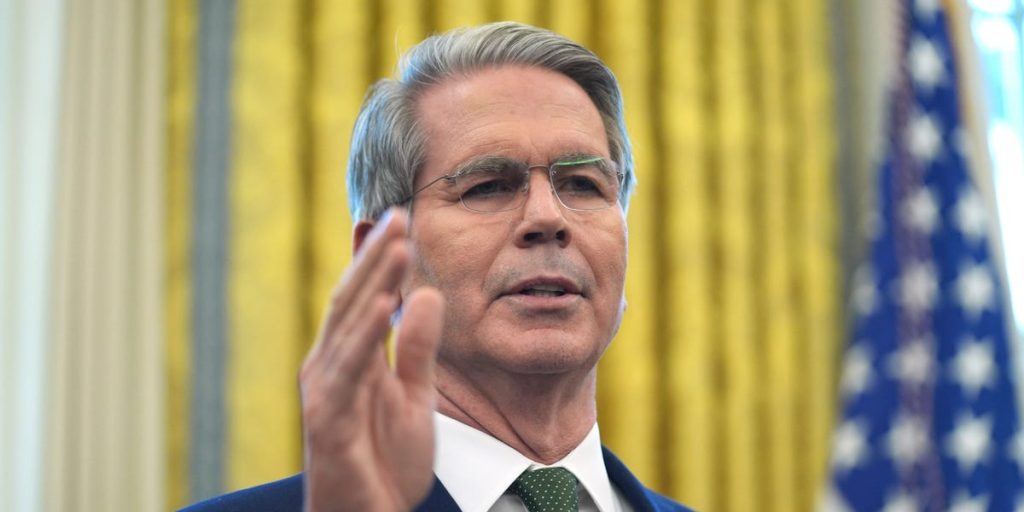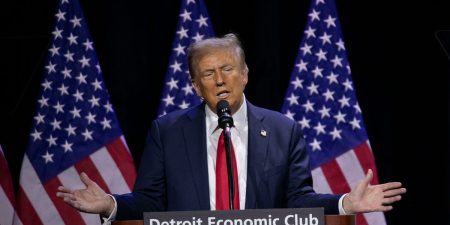Alignment on Cutting Waste: A Shared Vision Between Bessent and Musk
Treasury Secretary Scott Bessent has expressed strong alignment with Elon Musk regarding the need to reduce government waste and enhance accountability. In a recent interview with Bloomberg Podcasts, Bessent emphasized that he and Musk are "completely aligned" in their commitment to cutting waste and increasing transparency for the American people. He described the Department of Government Efficiency (DOGE), led by Musk, as one of the most significant initiatives for government audits and structural reforms in his lifetime. Bessent highlighted the potential for "gigantic savings" for the American people through this program, underscoring its importance in addressing inefficiencies within the federal government.
Swift Actions and Controversies Under the Trump Administration
Since President Donald Trump established the Department of Government Efficiency and brought it under the White House through an executive order, the administration has taken rapid steps to reduce spending and roll back regulations. Key actions include a federal hiring freeze, the cancellation of various government contracts, and plans to dismantle the US Agency for International Development. Additionally, contracts related to Diversity, Equity, and Inclusion (DEI) initiatives have been terminated. These measures have sparked significant backlash, including lawsuits, legal challenges, and public protests outside federal offices.
Concerns Over Access to Sensitive Treasury Systems
Recent concerns have arisen over the access granted to DOGE staff to the Treasury Department’s payment systems, which manage trillions of dollars in transactions, including Social Security benefits, tax refunds, and veterans’ benefits. Federal worker unions have filed a lawsuit against the Treasury Department, alleging that Musk’s team was given access to sensitive private data. On Tuesday, Trump clarified that DOGE staff had only "read-only" access to these systems, meaning they could not make changes. Bessent dismissed concerns about data security, describing the DOGE team as highly trained professionals focused on identifying improvements rather than making unauthorized changes.
Elon Musk’s Call for Immediate Action
Elon Musk has been vocal about his concerns regarding fraudulent payments approved by the Treasury Department. In a recent post on X, Musk stated, "Billions of taxpayer dollars to known FRAUDULENT entities are STILL being APPROVED by Treasury. This needs to STOP NOW!" His statement highlights the urgency he feels in addressing what he perceives as widespread fraud and inefficiency within the federal payment systems. Bessent addressed these concerns indirectly, framing the DOGE initiative as an "operational program to suggest improvements" rather than a direct intervention into Treasury operations.
Historical Context: The Grace Commission Report
Bessent drew parallels between the current DOGE initiative and the Grace Commission Report, a study conducted during the Reagan administration in 1984. The report proposed significant reforms across various government departments and agencies to reduce the national debt. While Bessent acknowledged the valuable suggestions from the report, he noted that "nothing happened" in terms of implementation. This historical context underscores the long-standing challenges of achieving meaningful government reform and suggests that the DOGE initiative may face similar hurdles.
Conclusion: A Promising but Challenging Initiative
The Department of Government Efficiency, led by Elon Musk, represents a ambitious effort to address government waste and inefficiency. While the initiative has the potential to yield significant savings for the American people, it also faces substantial opposition, including lawsuits, union resistance, and public backlash. Treasury Secretary Scott Bessent’s defense of the program highlights its focus on transparency and accountability, but the challenges ahead remain considerable. Whether the DOGE initiative will succeed where past efforts, like the Grace Commission, failed remains to be seen. One thing is clear: the stakes are high, and the outcome could have far-reaching implications for the future of government efficiency and fiscal responsibility.












